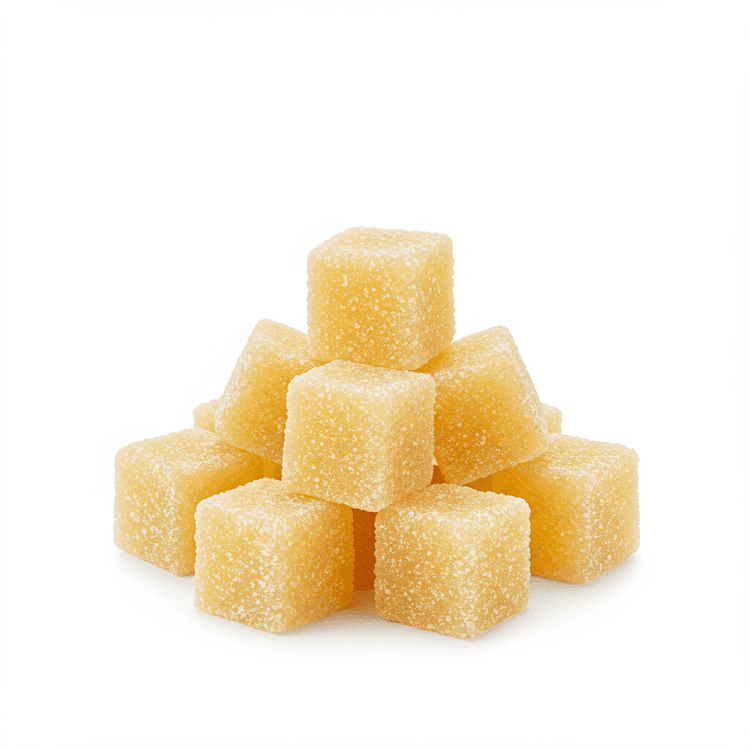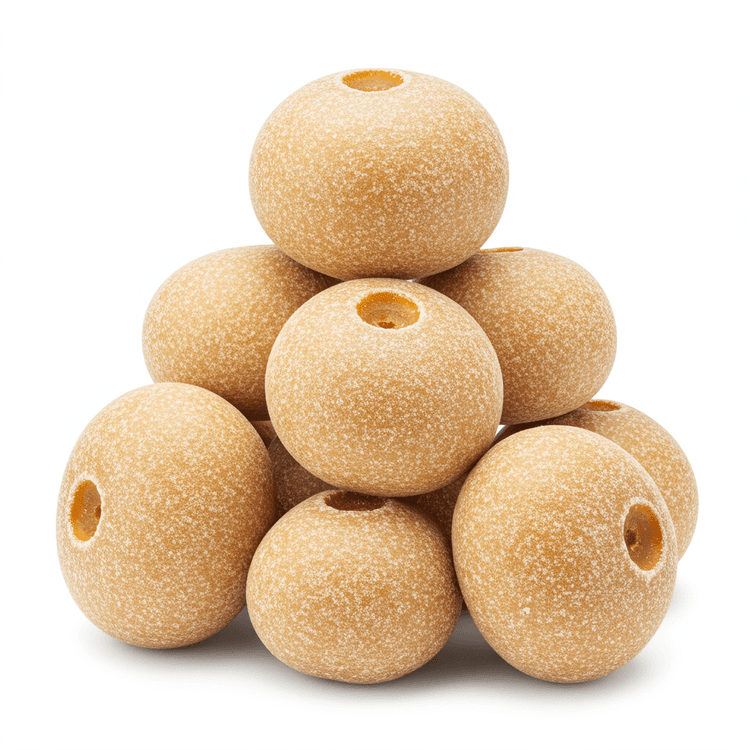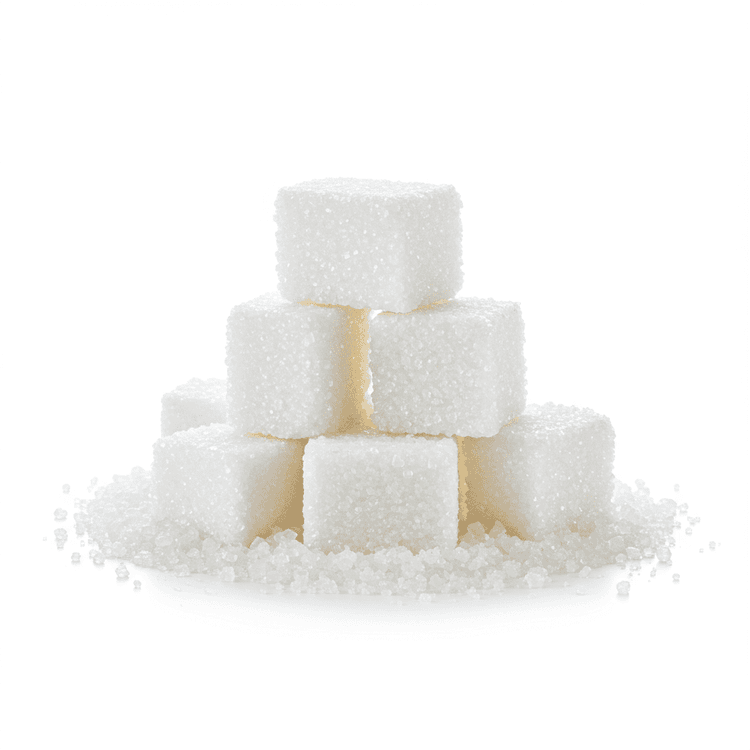
Glucose
Glucose, also known as dextrose, is a simple monosaccharide sugar that serves as a fundamental source of energy for living organisms. In culinary applications, glucose appears as a white, crystalline powder with a subtly sweet flavor, less intense than that of sucrose (table sugar). It dissolves readily in water, creating a clear solution. Food manufacturers and bakers often use glucose to enhance sweetness, improve texture, control crystallization in candies and desserts, and promote browning during baking, offering benefits in applications where too much sweetness from regular sugar is undesirable, offering better moisture retention in baked goods.
Common Uses
- To create smooth and creamy homemade ice cream: Glucose prevents ice crystal formation, resulting in a smoother, less grainy texture in frozen desserts. Use a small amount alongside other sugars to achieve the perfect consistency.
- In candy making to prevent crystallization: Adding glucose to hard candies, caramels, and fondants inhibits sucrose crystallization, resulting in a smooth, glossy finish and preventing a gritty texture. It's essential for achieving professional-quality confectionery.
- To improve the texture of baked goods, like cakes and cookies: Glucose helps to retain moisture in baked goods, keeping them soft and chewy for longer. It also contributes to a more even browning, creating a visually appealing and delicious final product.
- As a brewing aid in beer making: Brewers often add glucose to beer wort to increase alcohol content and produce a lighter-bodied beer. It ferments completely, leaving little residual sweetness and resulting in a crisp, dry finish.
- To create fondant: used extensively in cake decorations to create a smooth, pliable, and easy to shape fondant, improving the texture and workability compared to using only sucrose. It prevents cracking and provides a professional finish.
Nutrition (per serving)
Nutrition (per serving)
Calories
380.0kcal (19%)
Protein
0.0g
Carbs
100.0g (36.36%)
Sugars
100.0g (100%)
Healthy Fat
0.0g
Unhealthy Fat
0.0g
% Daily Value based on a 2000 calorie diet
Nutrition (per serving)
Calories
380.0kcal (19%)
Protein
0.0g
Carbs
100.0g (36.36%)
Sugars
100.0g (100%)
Healthy Fat
0.0g
Unhealthy Fat
0.0g
% Daily Value based on a 2000 calorie diet
Health Benefits
- Provides a quick source of energy for the body and brain.
- Supports muscle function during exercise and physical activity.
- Essential for cellular processes and metabolic functions.
- May help regulate blood sugar levels when consumed in moderation.
- Contributes to the breakdown of fats and prevents ketosis.
Chefadora AI is here.
Experience smarter, stress-free cooking.
Storage Tips
Glucose should be stored in an airtight container in a cool, dry place, away from direct sunlight and moisture. Properly stored, glucose can last for several years. Check for clumping or discoloration before use, which could indicate spoilage due to moisture absorption. Avoid storing in humid environments, as this can cause the glucose to harden and become difficult to work with.
Marnirni-apinthi Building, Lot Fourteen,
North Terrace, Adelaide, South Australia, 5000
Australia


